In the medical field, two scenes often dominate people’s imagination of a hospital. The first is the ward, where the heavy air and long waiting remind patients and families that illness has reached its final stage. The second is the delivery room, where laughter and tears intermingle as new life arrives, carrying with it hope and infinite possibilities.
The contrast between these two scenes reflects a fundamental reality of healthcare: today, the value of physicians is most visible when illness has already advanced, while the opportunity to safeguard health before disease takes hold is too often overlooked. With the growing burden on healthcare systems and increasing pressure on medical staff, society must reconsider whether the role of doctors should be redefined. Is medicine only about treating disease, or should it move further upstream to become a force for designing health? This question is increasingly guiding a new generation of physicians onto a different path.
In an interview with《The Icons》, global entrepreneur media, “The Elephant Doctor” Dr. Wei-Shin Chou shared his motivations and choices:
“From the moment I put on the white coat, I kept asking myself what true value I could bring to people. My decision to move from internal medicine to obstetrics was not to avoid the heaviness of the ward, but to step into the setting where new life is welcomed, reminding us to reflect on the true essence of medicine: not merely to extend the length of life, but to return people to health itself.”
As his clinical experience grew, Dr. Chou began to translate his practice into a form of social advocacy. From maternal health and cancer prevention to hormone care and holistic support, his work conveys a consistent message: “Healthcare must shift forward, creating space for the future before disease ever takes shape.”
“For me, medicine is not only about addressing pain,” Dr. Chou explained. “It is about giving people the opportunity to continue their journey through life, living with greater ease, with the chance to build a life that no longer circles back to the ward.”
From Rescuing at the End to Safeguarding at the Start
Dr. Wei-Shin Chou began his medical journey in internal medicine wards, where the atmosphere was often heavy. Patients usually sought help only after their illnesses had advanced to late stages, such as uncontrolled diabetes leading to complications or hepatitis patients repeatedly admitted due to alcohol use. Even when their conditions were stabilized, it often meant only extending time a little longer. As a physician, what he could do was mostly accompany patients through their final chapter, without truly changing the outcome.
This experience led him to question whether treatment alone defines the full meaning of medicine. If medicine is only about confronting the consequences, what is the true value of being a doctor? His perspective shifted when he moved into obstetrics and gynecology, where the atmosphere contrasted sharply with internal medicine. In the delivery room, parents, doctors, and nurses shared in the joy of new life, surrounded by hope and emotion. It was a kind of energy he had never experienced in internal medicine, prompting him to rethink the meaning of wearing the white coat. For Dr. Chou, who found fulfillment in sharing joy, this transition was not only a change of specialty but also a call back to his original purpose.
“In obstetrics, every smile is contagious. What I felt was not only joy but an abundance of love. Every moment reminded me that medicine is not only about extending life but also about helping people return to better living,” Dr. Chou said. Through these experiences, he gradually realized he needed to adjust his professional direction. If internal medicine meant constantly confronting the end, obstetrics offered a window to the beginning. This shift marked a key moment in his career, redefining his responsibility as a doctor.
“I came to understand that what truly shapes a patient’s life is not the final rescue but the earliest intervention.” For him, the role of a physician has moved from being only a clinical executor to becoming a guardian of health, from treating emergencies at the end of illness to protecting everyday life at its very start.
Professionalism Is Not About Burning Out but About Building the Capacity to Care for Others Continuously
During his residency in hematology and oncology, Dr. Wei-Shin Chou met an elderly Buddhist practitioner in the final stages of cancer. Their conversations, often about daily life and health, frequently touched on deeper reflections such as the Buddhist concepts of emptiness and being, reminding the young medical team to find stability in impermanence.
Over time, the two formed a profound friendship. Aware that his life was nearing its end, the elder often shared his philosophy of making choices with wisdom, believing it could enrich one’s own life and empower others. Before passing, he left Dr. Chou a handwritten letter filled with gratitude and life’s wisdom. In it, he urged: “Follow what you truly love. Real passion means continuing even when it is painful and difficult.” This message became a turning point for Dr. Chou, inspiring him to leave internal medicine and pursue a path that could truly ignite his passion.
Another influence came from a hospital director with whom he worked closely. Known for demanding the highest standards from himself and his team, the director still managed to maintain balance in life, spending weekends gardening or playing basketball. His lasting reminder to young doctors was clear: “If you cannot take care of yourself, how can you take care of others in the long run?”
For Dr. Chou, these two lessons, a letter from a patient and the example of a mentor, converged into the same truth. Medicine is not a sprint but a long-distance journey. To practice with professionalism, a doctor must pursue passion while safeguarding personal well-being. In his words, “Professionalism is not about burning out, but about sustaining the strength to continuously care for patients. Passion provides the drive, and balance ensures that we can walk with patients further on their journey.”
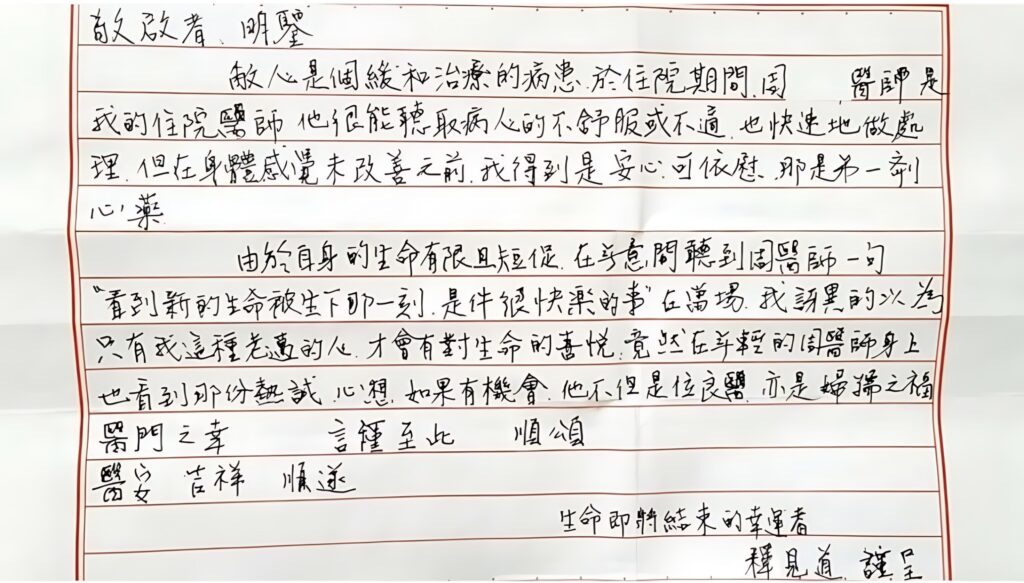
Dr. Wei-Shin Chou: Prevention Is the Truest Form of Medicine
In his clinical practice, Dr. Wei-Shin Chou has witnessed time and again the devastating cost of being “too late.” These moments not only weigh heavily on patients and families but have also become the driving force behind his commitment to advancing preventive medicine.
He recalls an emergency caesarean section where the mother was severely overweight, with uncontrolled blood pressure and blood sugar. The baby’s condition deteriorated rapidly, and every step in the operating room felt like a battle against death. Yet Dr. Chou knew the real issue had started long before that moment. “What we can gain in the operating room is only minutes or hours,” he reflects. “If maternal health had been addressed before pregnancy, the entire journey could have been much safer.”
Another case left an even deeper mark. A woman with lupus, whose condition was unstable, became pregnant despite repeated medical advice to wait until her health was better controlled. Her illness worsened dramatically mid-pregnancy, resulting in the loss of her baby and severe kidney damage that condemned her to long-term treatment. For Dr. Chou, this was a painful reminder that much of medical education is focused on “what to do after illness occurs,” while far less attention is given to helping patients prevent illness in the first place.
One night in the emergency ward, he treated a mother who had been diagnosed with precancerous cervical lesions more than a year earlier but never pursued follow-up care. She arrived bleeding heavily, her cancer already at stage three. Outside the room, her two young daughters waited anxiously in the corridor, a scene he still cannot forget. “The most painful part is not that we could not save her,” he recalls. “It is knowing that prevention was possible, but the opportunity was missed.”
These experiences have shaped his conviction that the future of medicine must shift further upstream.
“Prevention is not a slogan. It is a system that must be truly practiced in the clinic.”
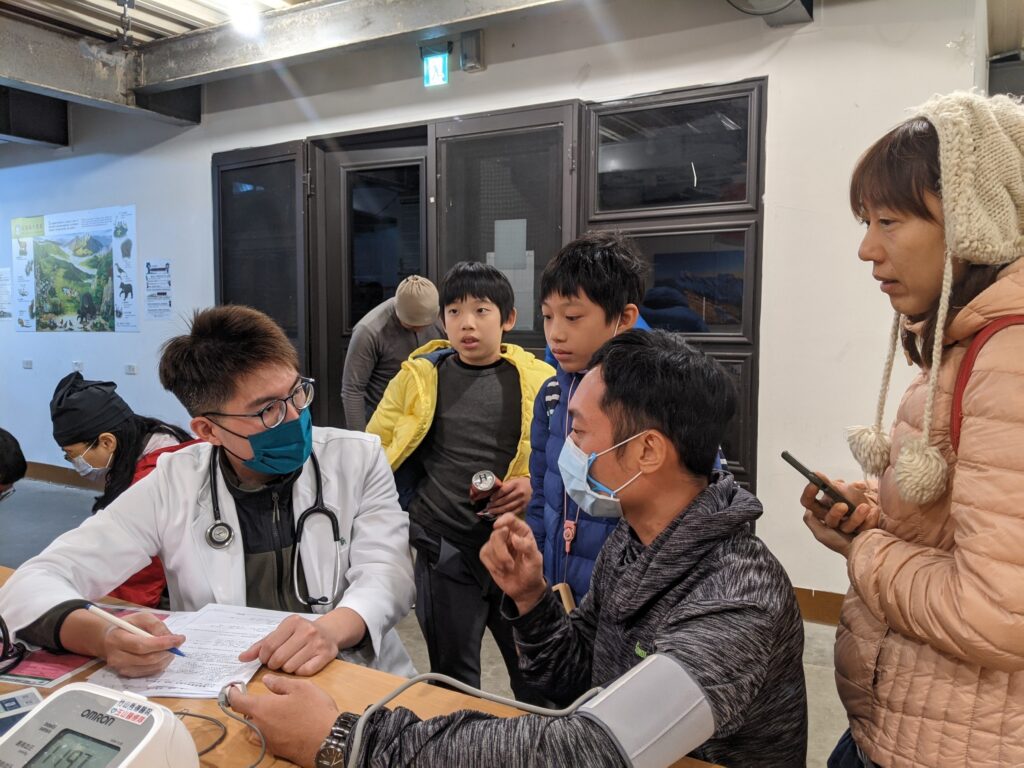
Treatment is not just prescribing medicine, it is guiding patients to a life where medicine is no longer needed
Dr. Wei-Shin Chou observes that much of a physician’s training has long centred on pharmacology, anatomy, and surgical skills. While these remain the core of Western medicine, they often leave little guidance for patients struggling with metabolic syndrome, hormonal imbalance, or chronic fatigue. He realised that relying solely on medication can trap patients in a cycle of dependence rather than gradually moving them away from risk. Determined to offer more, he devoted his days to clinical practice, his nights to studying nutrition, and his weekends to functional medicine and preventive health research.
“My goal is not only to tell patients which medicine to take, but how to live in a way that medicine becomes unnecessary,” he explains. By combining his expertise in obstetrics and gynaecology with functional medicine, he developed an integrated approach: stabilising conditions with medication when needed, then guiding patients toward long-term health through nutrition, exercise, and sleep management. For instance, he prescribes inositol or berberine for women with polycystic ovary syndrome, and uses curcumin and targeted supplements for young women struggling with acne or body-image concerns, supported by clinical testing to identify root causes.
One case that remains vivid in his memory involved a university student with severe acne and irregular periods. Despite spending heavily on skincare and dermatological treatments, nothing worked. Tests revealed polycystic ovary syndrome. Through a personalised plan of nutrition-based therapy and lifestyle adjustments, her skin cleared and her mood stabilised within six months.
“For me, medicine is not only about curing illness but about accompanying life through its most fragile and authentic moments. Like the elephant, I hope to walk alongside my patients and my team with both gentleness and resilience. I may not be able to change the length of life, but I can help preserve its depth. That depth is the very essence of why The Elephant Doctor chose to become a physician.”
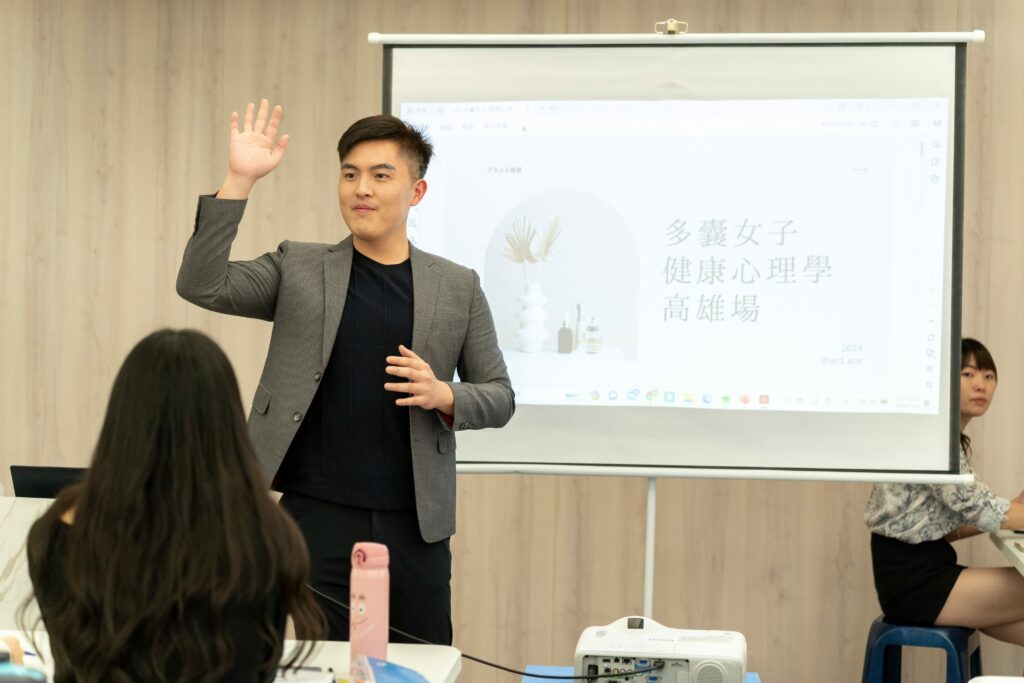
Functional Medicine Turns the Clinic into a Third Space for Understanding Stress
When most people picture an obstetrician and gynaecologist, they imagine scalpels, ultrasounds and medical reports. Yet Dr. Wei-Shin Chou’s consultation room feels more like a safe space where patients can speak freely. Many arrive not only with lab results but also with stress, anxiety and unease, which gradually ease as he listens.
Dr. Chou makes it a point to leave time for patients to share what is on their minds. Some speak about difficult family backgrounds, others about conflicts with partners, and many about the toll of long-term work stress. These conversations may seem unrelated to medicine, but they profoundly affect hormones and behaviour.
“Bring your worries into this room. In these thirty minutes, you do not need to hide anything,” he often says. His advice usually falls into two forms. The first is small lifestyle adjustments that can be carried out immediately, such as walking ten more minutes each day or avoiding blue light before bed. The second is measurable indicators so patients can clearly see the effect of their efforts. When challenges make these steps difficult, he encourages them to speak openly so they can work together on practical solutions.
For Dr. Chou, the physician and patient are partners rather than actors in a one-way directive. As he explains, “When patients feel understood, change no longer feels like a burden but becomes a choice they are willing to make.” Functional medicine offers a way to connect stress and symptoms, while listening gives patients the courage to confront their situation. Patients entrust not only their test results but also their life experiences. The real value of the consultation lies in the moment they leave with a lighter spirit and a smile that was not there when they arrived.
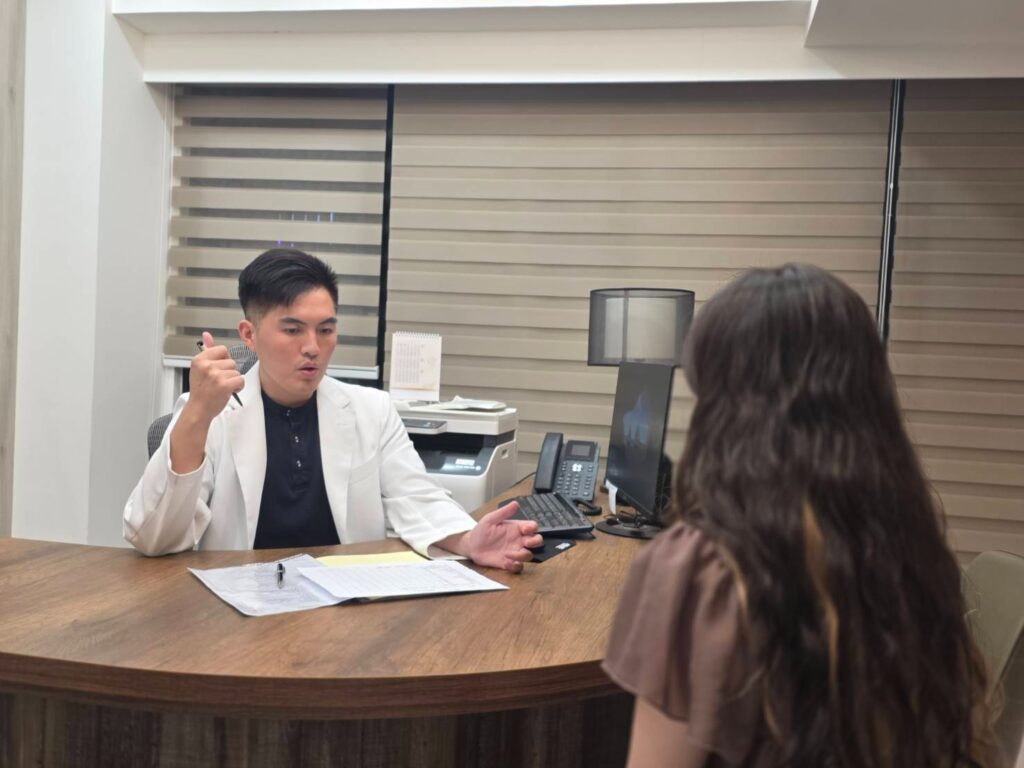
When Healthcare Reaches Its Limits, Prevention Becomes the Only Answer
Dr. Wei-Shin Chou also points out that Taiwan’s National Health Insurance system is under unprecedented strain, with medical manpower stretched thin and accessibility facing increasing challenges. In this reality, he sees the solution in a mindset he has long emphasised: not waiting until the very end to rescue patients, but safeguarding health from the outset, enabling people to prevent imbalance in their daily lives. Only then can emergency rooms and the healthcare system reserve limited resources for those who need them most.
“If healthcare always arrives at the last moment, it is merely a remedy. What I want to do is protect my patients’ health from the very beginning.”
From his clinical experience, women’s health is one of the clearest examples of the value of proactive medicine. From pre-pregnancy to menopause, from hormonal regulation to psychological support, women’s needs often span across stages of life. What they require is not a single solution but a long-term, integrated approach. This is where functional medicine proves its strength: through precise testing and early signal detection, it integrates lifestyle, nutrition and medication to design personalized health plans.
To promote this philosophy, Dr. Chou not only practises it in his clinic but also dedicates himself to knowledge-sharing. He develops online courses, hosts public lectures and guides more people to understand how prevention can be woven into everyday life and clinical practice. For him, the physician’s responsibility extends beyond the consultation room into society, where doctors must become advocates of health awareness.
“As self-awareness and psychological needs gain greater attention, women’s health is becoming a central issue in medicine. I believe the role of doctors is shifting from being purely healers to becoming integrators of body, mind and spirit. Our value does not begin only when patients enter the hospital. It starts at the very source of their daily lives, where we help them safeguard their health. Functional medicine brings clarity to this direction, and knowledge-sharing makes it actionable. This, I believe, is the true answer for the future of healthcare.”
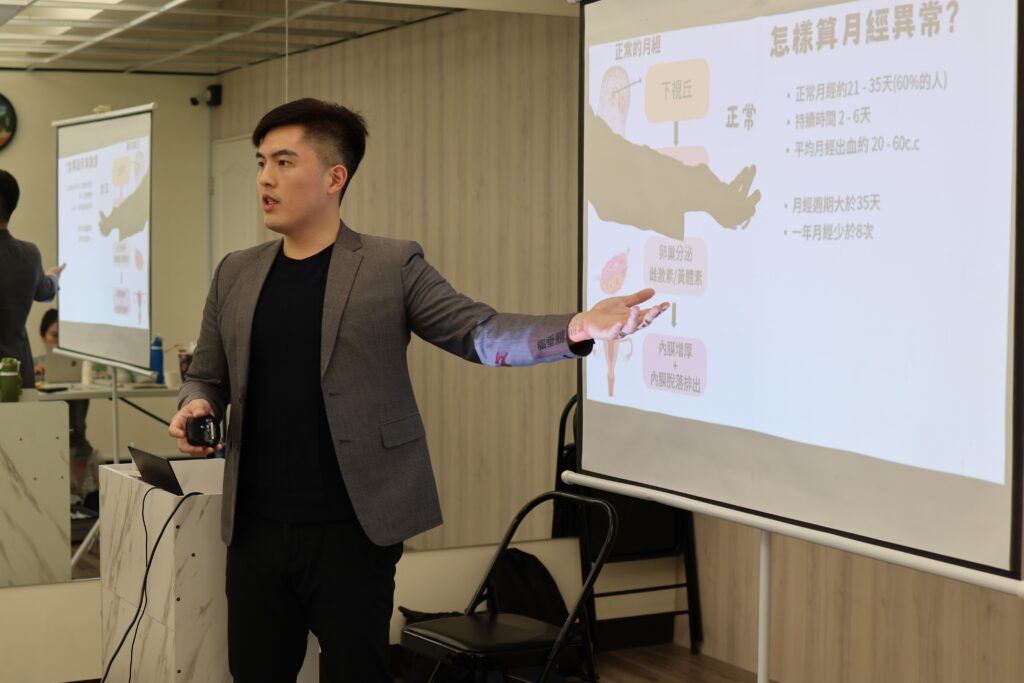
Learning from the Elephant
Dr. Wei-Shin Chou has always embraced the nickname “The Elephant Doctor,” seeing in the elephant a mirror of his philosophy as both a physician and a human being. His first encounter with the animal as a child at the Taipei Zoo left a lasting impression: immense in size yet radiating calm, its presence conveyed a quiet gentleness and steady strength. As he later learned more, he discovered that elephants embody close-knit family bonds, fiercely protect their young, and stand together against threats. To him, this duality of tenderness and resilience is precisely what defines the role of a doctor: the ability to listen with patience while also making decisive choices when lives are at stake.
What touched him most was the way elephants face the end of life. When nearing death, they walk toward elephant graveyards, meeting their final journey in silence and composure. For Dr. Chou, such dignity revealed that accepting mortality with peace is itself a profound form of wisdom. He adds that studies have observed elephants pausing at the remains of their kin, gently touching the body, sometimes standing vigil for hours. To him, this behaviour resembles human remembrance, carrying a quiet reverence for continuity and collective memory.
In these rituals, Dr. Chou sees not only the natural cycle of life and death but also what he calls “the depth of life”: to move forward with courage while holding gratitude for the past. Just as his mentors once guided him, so too have his patients, many in pain, become his greatest teachers. This interplay of advancing and remembering, he says, is the foundation of his medical philosophy.
“Medicine is not only about curing illness. It is about standing with people through their most fragile and most authentic moments of life. Like the elephant, I aspire to walk with gentleness and resilience alongside my patients and my team. Perhaps we cannot change the length of life, but we can honour its depth. And that depth is the truest origin of my calling as the Elephant Doctor.”
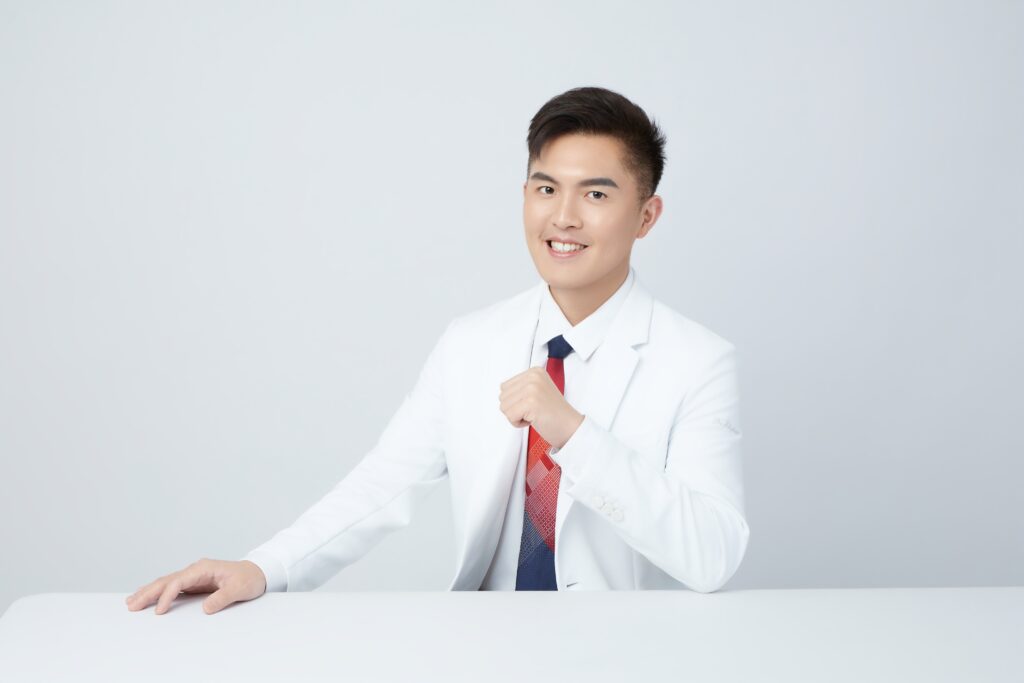
Recommend for more: